|
Police investigate Hanoi pagoda for allegedly selling children
An investigation at the Bo De Pagoda in Long Bien District in
Hanoi will be expanded after a caretaker of orphans at the pagoda was
arrested on Monday on allegations of selling children.
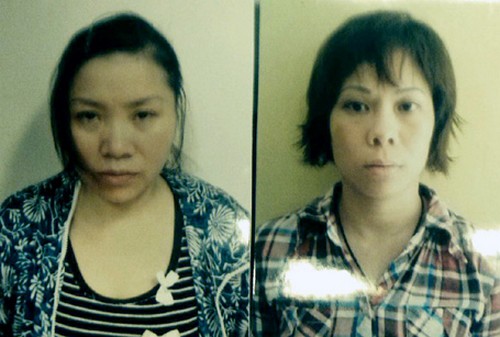
The two women who were arrested on Monday, Trang (right) and Nguyet.
The
authorities of Long Bien district have also formed two inspection teams
to check Bo De Pagoda, located at the foot of the Long Bien Bridge. It
is known as a place where orphans, abandoned children or homeless
seniors can reside for free.
The one-week inspections started on
Tuesday. After the inspections, the local government will make decisions
on the fate of the orphans at the pagoda.
Earlier, the police
launched an investigation in response to some reports that Bo De Pagoda
has become an "intermediate channel" for selling orphans to people who
want to adopt.
Currently, the pagoda is home to 112 orphans, abandoned and disabled children, 53 helpless old people and 48 homeless women.
Long
Bien district’s Vice Chair Vu Thu Ha said the inspections are
independent from Hanoi Police’s investigation of the baby selling
allegations. The inspections aim to strengthen state management over the
pagoda’s operations, particularly its orphanage.
Hanoi police on
August 3 arrested two women for allegedly selling a nine-month-old baby
from Bo De Pagoda. One of the detainees is Nguyen Thi Thanh Trang, 37,
the caretaker of the children supported by the pagoda, and the other is
Pham Thi Nguyet, 35, a woman from northern Ninh Binh Province.
The
women have been charged with "trading in, fraudulently exchanging or
appropriating children". Three others have been questioned over the same
allegation.
The boy was found in front of the pagoda in 2013. A
couple who often visited the pagoda agreed to be godparents to the boy
and named him Cu Nguyen Cong. Then he disappeared in 2014.
Investigations show that Trang and Nguyet sold Cong for VND35 million
(US$1,650).
The investigation showed that Trang concealed
information about the baby. She told the pagoda’s chief monk Thich Dam
Lan that the boy was her nephew.
Police investigated the child
selling allegations at the Bo De Pagoda after the HCM City Women
Newspaper published a reportage on the situation.
Thich Dam Lan,
the pagoda's chief monk, meanwhile, rejected the allegation. Operating
costs for the pagoda, she said, are met mainly with donations from
benefactors and visitors.
While investigators look into the
adoption sale allegations, visitors and volunteers coming to the pagoda
have raised concerns about living conditions for the children there.
Bo
De Pagoda, which was built in the early 18th century and is surrounded
by green trees, has been well-maintained for years. But accommodations
for their neediest residents are a different story, say visitors and
volunteers.
Dang Van Bat, deputy director of the Hanoi's
Department of Labour, Invalids and Social Affairs, said the pagoda
doesn't have a license to run such a center. He said according to the
law, when a centre has over 10 children, orphaned, abandoned or
homeless, it must submit an application to establish a social protection
center.
The Long Bien District's authority has sent staff to
assist the pagoda with the application process, but it has not finished
the paperwork.
The chief monk has admitted that the pagoda could
not meet the criteria for establishing a social protection center.
Nevertheless, the center was created "out of love for the children", she
said.
At a press conference held by Hanoi Police yesterday, the
police said that the chief monk Thich Dam Lan would be also
investigated.
The lives of orphans in Bo De Pagoda
|
Thứ Tư, 6 tháng 8, 2014
Đăng ký:
Đăng Nhận xét (Atom)
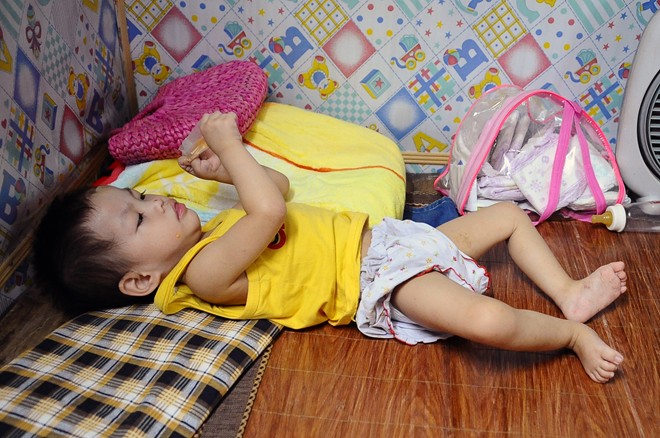
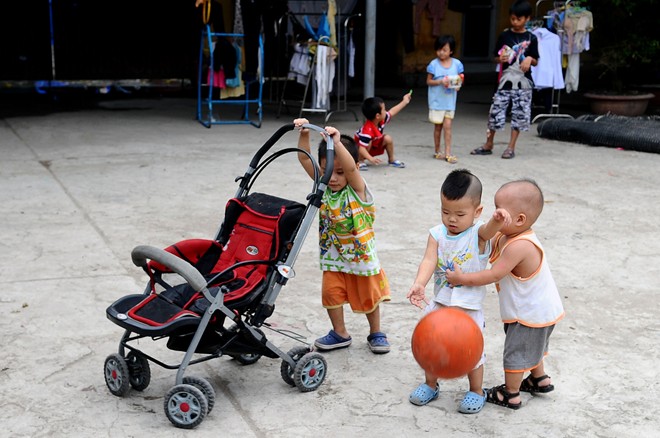
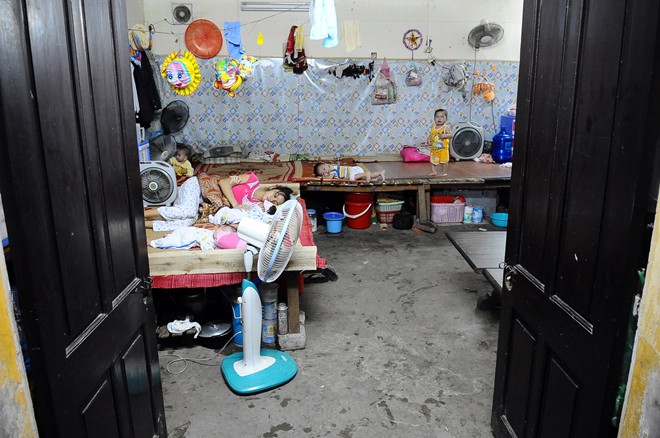
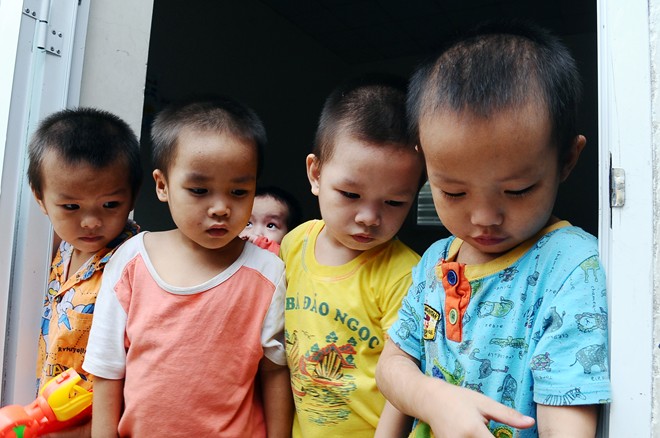
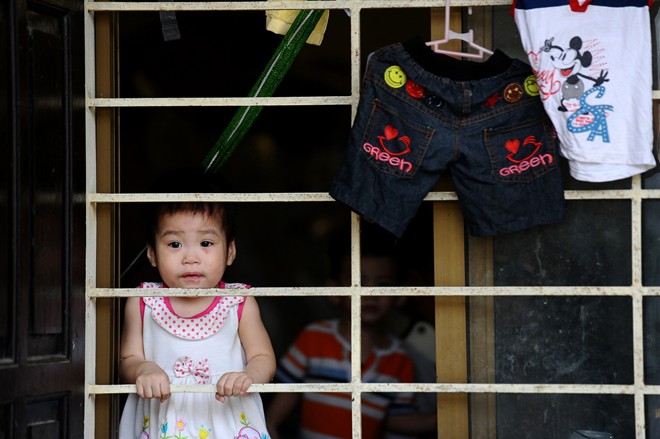
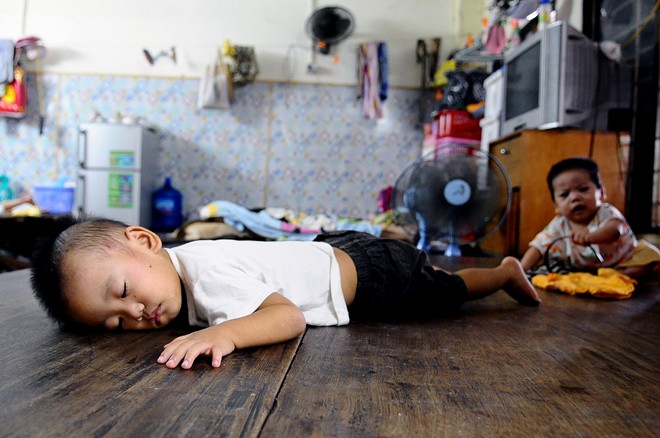
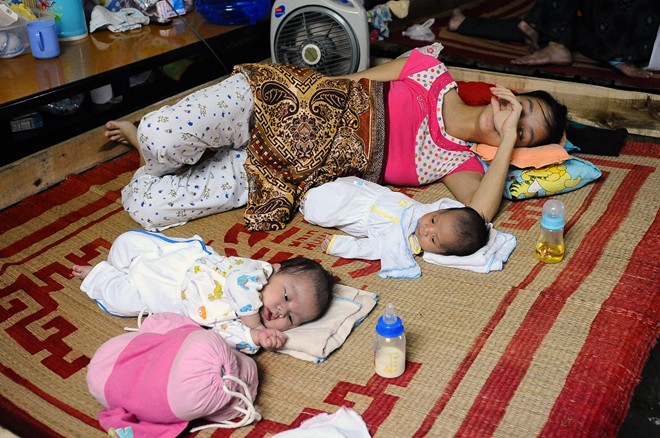
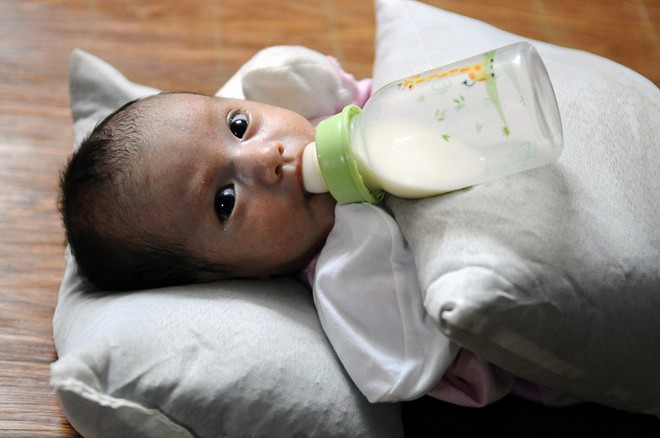
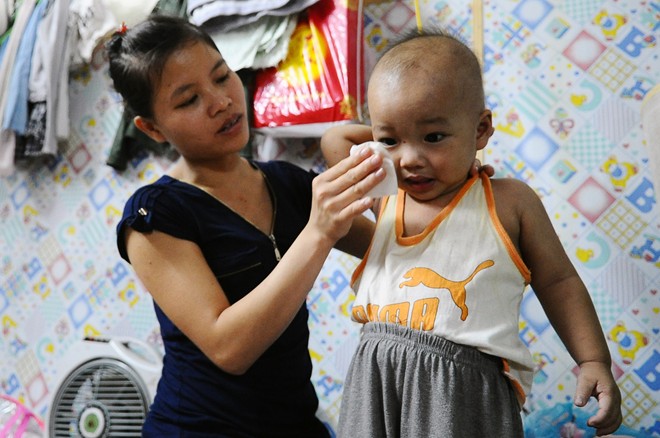
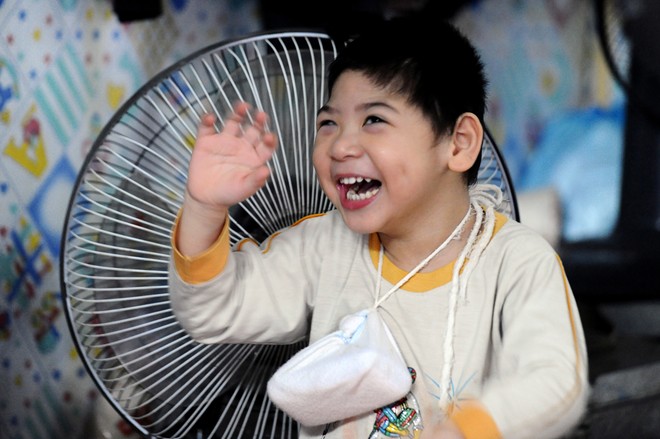
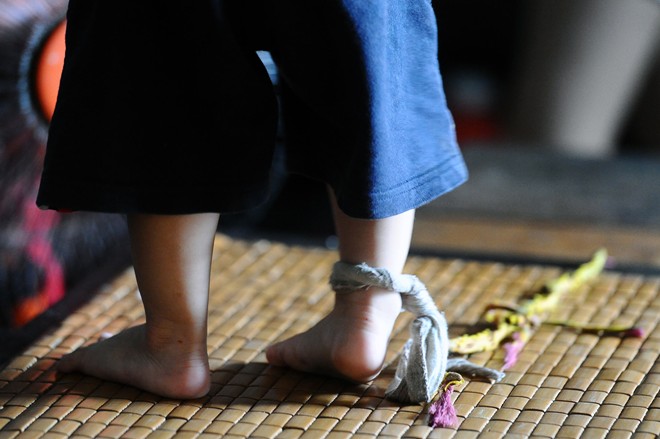
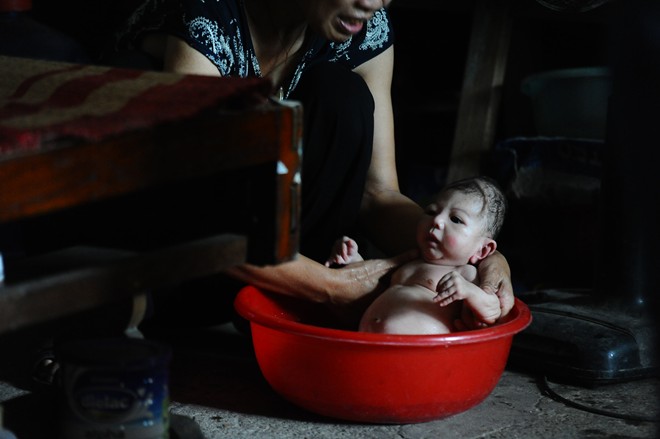
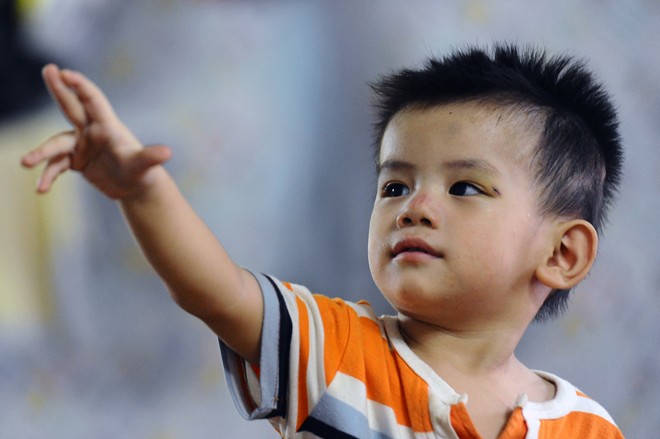
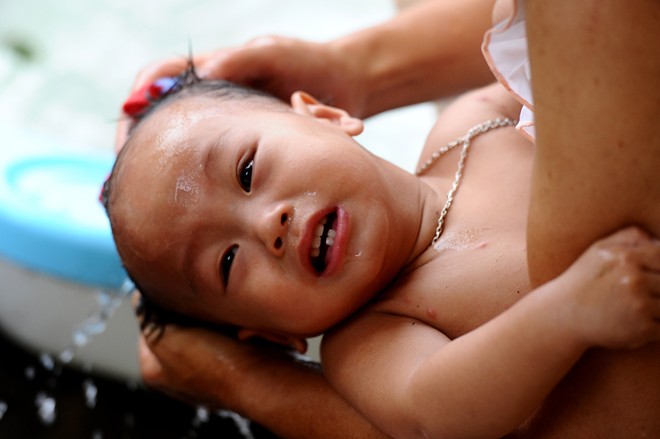
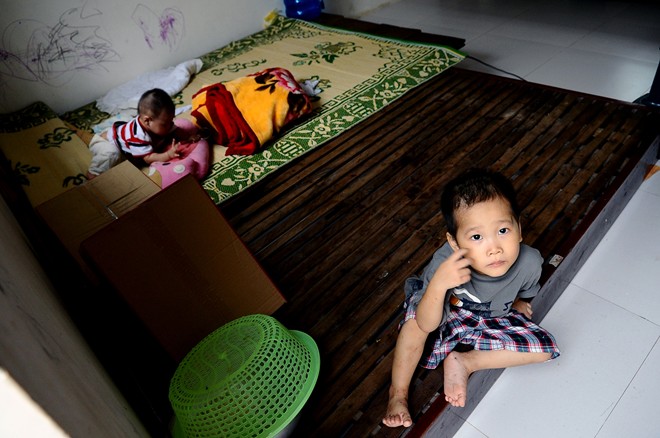
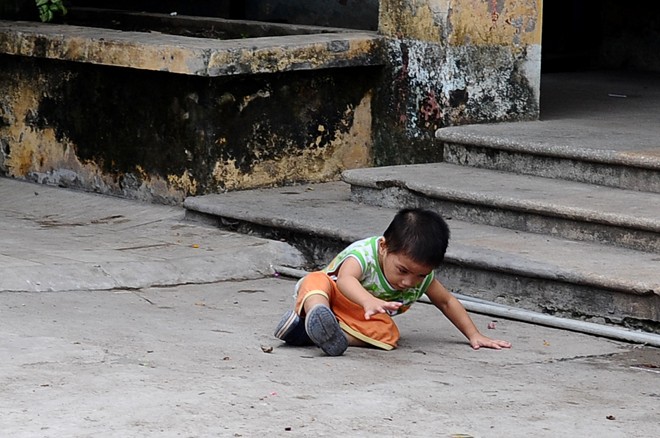
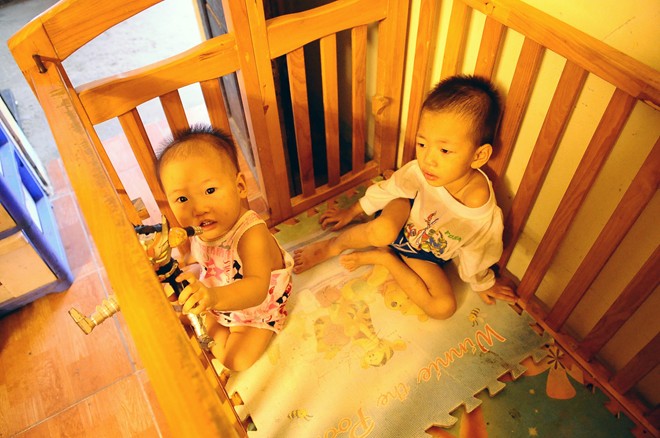
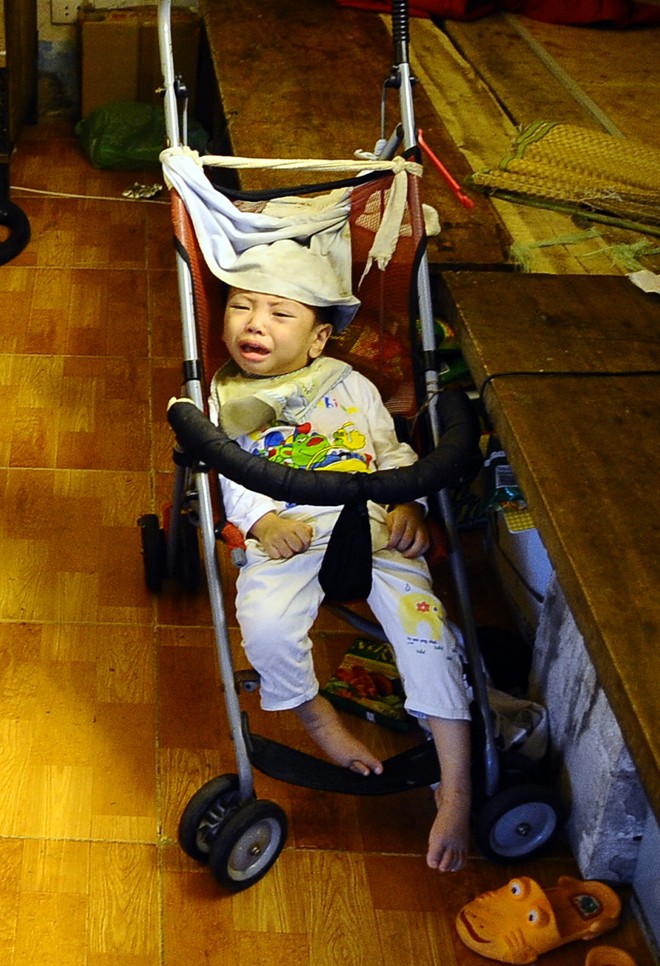
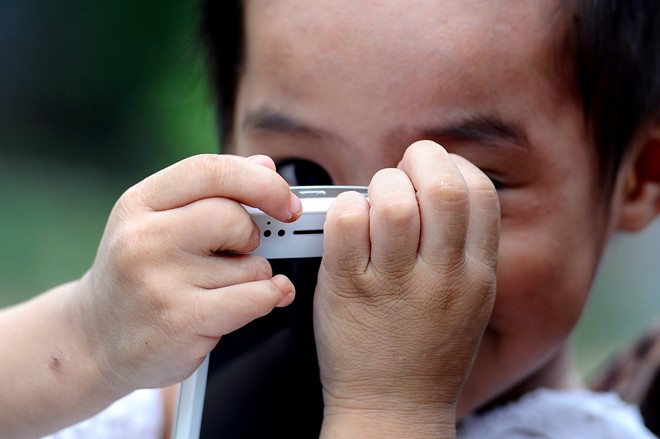
Không có nhận xét nào:
Đăng nhận xét